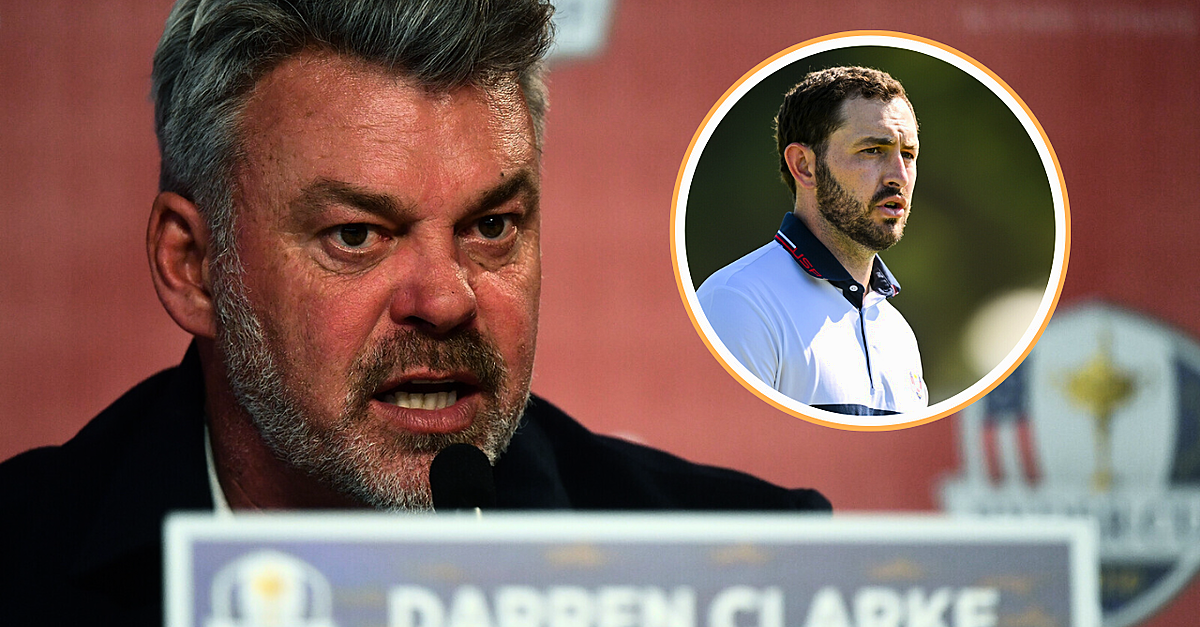Former Ryder Cup captain Darren Clarke has hit out at the PGA of America’s decision to pay Team USA players at this year’s Ryder Cup, saying the move “does not sit well” with him and goes against everything the competition stands for.
For the first time in the event’s history, the 12 American players at Bethpage Black will each receive $500,000 split between a $200,000 personal stipend and $300,000 directed to charities of their choice. The PGA of America announced the new system in December, with the money coming from an increased Ryder Cup allocation.
But Clarke, who played in five Ryder Cups for Europe before captaining the side in 2016, believes the decision undermines the unique spirit of the tournament. The Tyrone native played an instrumental role in Europe’s 2006 win at the K Club in Ireland.
“That does not sit well with me,” Clarke told Golf Channel. “You can ask any of those guys in that European team would they accept money. Everyone would say no. It is not about money. That is not what the Ryder Cup is about.”
Clarke argued that the passion and pride of making the European team has always been what sets the sides apart.
“The Europeans would live and die just to make the team… Maybe that is why they are more of a team, they pull so hard for each other that the money is totally irrelevant.”
Recommended
Team Europe will continue their long-standing policy of refusing payment. Captain Luke Donald has been outspoken on the issue, saying the Ryder Cup should never involve money. Rory McIlroy went even further, insisting he would “pay for the privilege” of competing.
Other European stars like Shane Lowry have echoed that view, stressing that playing in the Ryder Cup is an honour in itself. Even if money was ever offered, European players have said they would channel it back into the DP World Tour or grassroots development.
Ryder Cup: Mixed reaction Stateside to payments
Not all Americans are convinced by the new approach either. LIV golfer Patrick Reed criticised the payout, calling it unnecessary and suggesting any money should go entirely to charity. World No. 1 Scottie Scheffler, however, took a softer line, saying he plays for free but “if somebody wants to pay us…that’s great.”
Patrick Cantlay, who was at the centre of controversy in Rome in 2023 after being accused of protesting over pay by not wearing his team cap, has consistently denied being motivated by money. He dismissed the storyline as a “media narrative” and said his focus is on representing his country and winning points.
Questions about pay at the Ryder Cup are nothing new. As far back as 1999, Tiger Woods and other U.S. players argued they should at least have a say in where Ryder Cup revenue goes. Since then, the PGA of America has made charitable contributions in players’ names, but until now no direct stipends were paid.
The issue bubbled up again in Rome last year, when reports of American discord centred on Cantlay’s supposed protest dominated headlines. Cantlay and his teammates laughed it off, insisting the only thing missing was a well-fitting cap.
The Ryder Cup has always prided itself on being different from other events in golf a competition about passion, pride, and representing your continent, not prize money. Clarke and many European voices believe that distinction is what makes it so special.
With the U.S. breaking new ground by introducing payments, the debate is unlikely to fade anytime soon. And as Bethpage Black looms, it remains to be seen whether money will change the dynamic in golf’s most divisive week.

